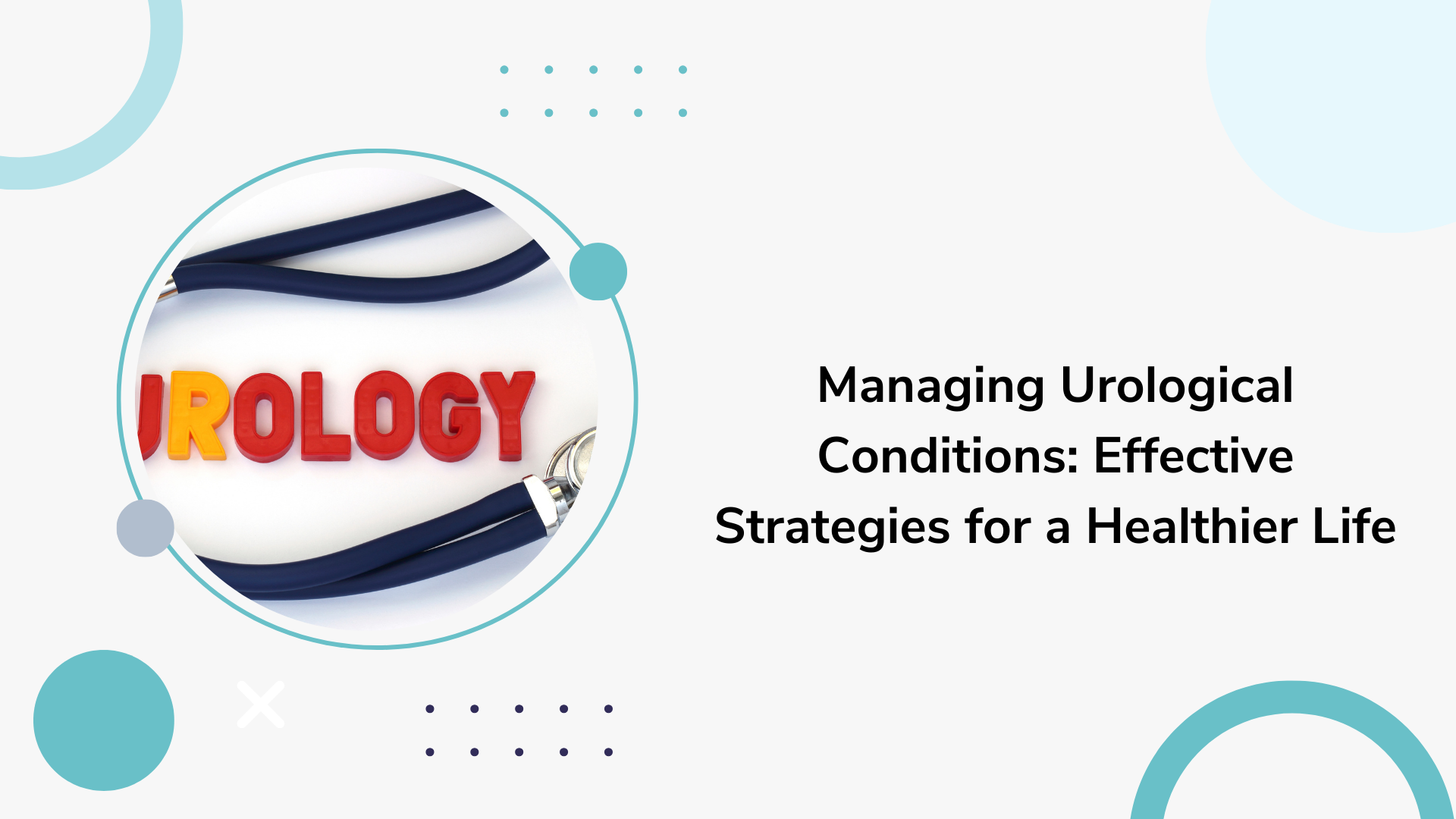
Urological conditions can significantly impact quality of life, but effective management strategies can help maintain and even improve overall health. Understanding common urological issues, their symptoms, and the best approaches to manage them is crucial for anyone seeking to lead a healthier life.
Common Urological Conditions
- Urinary Tract Infections (UTIs): These infections can affect any part of the urinary system, including the bladder, kidneys, ureters, and urethra. Symptoms include frequent urination, a strong urge to urinate, pain or burning during urination, and cloudy or strong-smelling urine.
- Kidney Stones: Solid deposits that form in the kidneys can cause severe pain, blood in the urine, and nausea. They are often caused by dehydration, certain diets, and genetic factors.
- Prostate Problems: Conditions like prostatitis (inflammation of the prostate), benign prostatic hyperplasia (BPH), and prostate cancer are common, especially in older men. Symptoms include difficulty urinating, frequent urination, and pelvic pain.
- Incontinence: Loss of bladder control can range from occasional leaks to a complete inability to control urination. It can be caused by various factors including muscle weakness, nerve damage, and certain medical conditions.
- Interstitial Cystitis (IC): Also known as painful bladder syndrome, IC is a chronic condition causing bladder pressure, bladder pain, and sometimes pelvic pain. The exact cause is unknown, and symptoms can vary from mild to severe.
Effective Management Strategies
- Hydration: Drinking plenty of water is essential for flushing out the urinary system and preventing infections and kidney stones. Aim for at least 8 glasses of water a day, more if you’re active or live in a hot climate.
- Diet:
- For Kidney Stones: Reduce intake of oxalate-rich foods (like spinach, beets, and nuts), limit salt and animal protein, and ensure adequate calcium intake from dietary sources.
- For UTIs: Cranberry juice and probiotics may help reduce the risk of recurrent infections.
- For Prostate Health: A diet rich in fruits, vegetables, and healthy fats can promote prostate health. Foods like tomatoes, berries, and fatty fish are particularly beneficial.
- Regular Exercise: Physical activity helps maintain a healthy weight, reduces the risk of chronic diseases, and can improve pelvic floor muscle strength, which is beneficial for managing incontinence.
- Pelvic Floor Exercises: Also known as Kegel exercises, these strengthen the pelvic floor muscles and can be effective in managing urinary incontinence and other pelvic floor disorders.
- Medication: Depending on the condition, medications can range from antibiotics for infections, alpha-blockers for BPH, to pain relievers and anti-inflammatory drugs for IC and kidney stones. Always consult with a healthcare provider for the appropriate treatment.
- Medical Procedures: In some cases, surgical interventions may be necessary. For example, severe kidney stones might require lithotripsy (shock wave treatment), and advanced prostate issues might need surgical removal of the prostate.
- Behavioral Techniques: Bladder training and scheduled voiding can help manage incontinence by gradually increasing the time between urinations and reducing urgency.
- Regular Check-Ups: Regular visits to a urologist can help monitor existing conditions and catch new issues early. Screenings, such as PSA tests for prostate health, are crucial for early detection of potential problems.
- Avoid Irritants: Limit intake of bladder irritants such as caffeine, alcohol, and spicy foods. These can exacerbate symptoms of interstitial cystitis and incontinence.
- Stress Management: Chronic stress can negatively impact urological health. Practices such as yoga, meditation, and deep breathing exercises can help manage stress levels.


